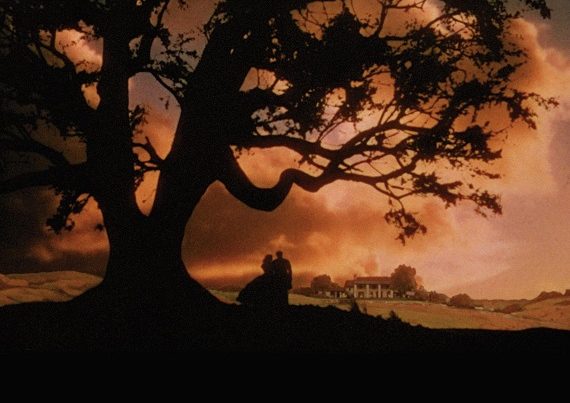Has Virgil Kane Been Reconstructed?
In 1865 George Stoneman was a mediocre Union general leading cavalry behind Confederate lines in Virginia. 100 years later a Canadian rock band made him famous.
It took Robbie Robertson more than six months to write the song. He spent time in libraries researching the end of the war. Many say it was an anti-war song which makes sense as it was first released in 1969. At the time, Rolling Stone Magazine reckoned the song had “that ring of truth and the whole aura of authenticity”. Now, if performed at all, lyrics are changed to ensure the proper hatred of the Confederacy comes through and Robert E. Lee is not celebrated.
Robertson was Canadian and his mother was raised on the Six Nations of the Grand River reserve southwest of Toronto. This must have influenced him. He was a storyteller. In 2019 an interviewer asked him about his song “glorifying the Confederacy”, he answered by saying “it was a story.” He said it was “about a Southern family that lost in the war, in the Civil War, from their side, but the story of that family.”
Robertson died recently, and the Los Angels Times did a piece on his songs. Here is what they said about “The Night They Drove Old Dixie Down”:
“Deftly sidestepping any sympathy for the Confederate, he shows great empathy for the plight of Virgil Kane, his invented Southerner who mourned the losses incurred in the war without celebrating the lost cause.”
Like the modern activist historian, the LA Times needs no basis for their claim. They can’t imagine that 50 years ago Robert E. Lee was not seen as the embodiment of all things evil, so they say whatever makes them feel good.
Back with my wife in Tennessee
When one day she called to me
“Virgil, quick, come see,
There goes Robert E. Lee!”
It is unlikely that Robert E. Lee was in Tennessee after the war, but the lyric indicates she saw him. Other artists insert the word “the” before Robert E. Lee. This makes it as if she saw a steamship and not the man, thus avoiding the source of her excitement stemming from seeing the actual man. Levon Helm who helped Robertson with the song remembers it this way:
“I remember taking him to the library so he could research the history and geography of the era and make General Robert E. Lee come out with all due respect.”
Robbie Roberston has passed on, but Virgil Kane will live forever. The only question is whether he will be reconstructed.







“Like the modern activist historian, the LA Times needs no basis for their claim. They can’t imagine that 50 years ago Robert E. Lee was not seen as the embodiment of all things evil, so they say whatever makes them feel good.”
“Feeling good” is not a concept to these sorts of people. Like Hamas, they claim and ingest madness like locusts eat themselves out of food.
Even the uber leftist Joan Baez recorded this song in the 60s.
She played it in concert, too. The crowds roared approval.
She even changed the lyrics ie “I swear by the mud below my feet” was rewritten as “I swear by the blood below my feet” to create more uproar amongst the audiences she performed for.
I believe the correct lyrics are :Virgil quick come see, the Rebels of Robert E. Lee
correction-after watching a live video the line is” there goes the Robert E. Lee”.
I’m certain the LA Times and every other artery hardened media mainstay will forever after use Robert E. Lee and other white, conservative heroes to weigh down influence of the vanishing white majority. Their shallowness of knowledge and research shows, though, in treating “The Night They Drove Old Dixie Down” and Robbie Robertson as authoritative sources. Modest familiarity with events and chronology of the War show Robertson wrote a story from things cobbled together from an afternoon in the history section. No, Lee was never close to Tennessee and Stoneman was never close to the [Richmond &] Danville Rail Road. There was a raid on the road with negligible results a year before Appomattox but it was still intact for Jeff Davis to make his way to Danville as he fled Richmond, the last road south.
The song is a nice one though. Whether Robertson knew anything of the war, the lyrics and gorgeous vocal from Levon Helm seem heartfelt; I doubt there was any attempt at “sidestepping any sympathy for the Confederate”. As a matter of fact, accuracy of the narrative doesn’t matter. Disavowal aside, there’s no doubt the LA Times’ motive for qualified praise for the song is to criticize obvious “sympathy for the Confederate”.
A great song performed by The Band.
https://m.youtube.com/watch?v=iwYTZmCXYGY&pp=ygUXYmxhY2sgY3Jvd2VzIGRpeGllIGRvd24%3D
I’ve been partial to the Black Crowes version since I first heard it…
I lived under the uber left L.A. Times. Our group nicknamed them the L.A. Pravda.
To give credit where credit is due, Mr. Walker is correct! “Virgil, quick come see! There goes the Robert E. Lee!!” I was a teenager with a radio when it came out in 1969 and I’ve sung it with the band a thousand times. It was a popular folk /rock song famously sung by Joan Baez and other performers of this genre. The young people at the time loved it because it reflected their cynicism about the Vietnam War, so it was no doubt popular due to its anti-war sentiments. However, Southern folks also celebrated the nostalgic embrace of the defeated post-war South.
I’ve listened to the numerous versions by the Band, studio and live, countless times and the word “the” isn’t discernible in any of them. In none of them is the word enunciated. It’s easy to hope or imagine the word is there. Whether heard in person or recorded, by Levon Helm or the next door neighbor, there will be sound in transition from the word “goes” to “Robert E. Lee” but there’s no evidence of the word in “there goz’u’Robert E. Lee”.
The only thing that interests me are establishment attempts at diminishing Lee. As a pop song it doesn’t matter if the word is there. Robbie Robertson may have used the word. I wish there existed his handwritten lyrics. It appears Robbie Robertson was thinking of a man and not a boat. Any contexts of Robert E. Lee and the War are almost synonymous. The man fits in any song about the War. There’s no context in Robertson’s song indicating a boat, no reason. There are endless reasons to include Robert E. Lee
All the angst from pals and bubs….
It’s only rock ‘n’ roll.
Peace.
nope, the lyric is “There Goes Robert E Lee”
You are absolutely correct compatriot!
Ok. Most of y’all are wrong…that’s ok. It’s a poem. It’s not supposed to make sense unless you are the poet or a person interpreting the poem.
“VC is my name and I SERVED ON THE DANVILLE TRAIN.” VC is Virgil Caine or Viet Cong…He served…he wasn’t a soldier. He was a porter, perhaps.
“Til Stoneman’s cavalry came, and tore up the tracks again.” Wars, and rumors of War. This is just a filler. Could have been any yankee in the area. Please, no “he was a mediocre general”…most people rise to their level of incompetence. I am sure Stoneman was as competent as any man can be, short of being declared “incompetent”.
“in the winter of ’65″…I will leave this for a moment to see if you poets understand the timeframe and what the winter actually is…
“we were hungry, just barely alive by May 10th” Jefferson Davis was captured in Georgia on 10 May.
“Richmond had fell, it was a time I remember, oh so well”….May 10th and Richmond falling are not related…but 10 May Jefferson Davis’ capture and the fall of Richmond are related.
“TntdoDd…and all the bells were ringing”…why were the bells ringing? Fires. Set perhaps intentionally…the bells calling the yankees to come restore order perhaps.
TntdoDd…and all the people were singing, they went…bunch of nananas…they’re singing “Dixie” but as a funeral dirge…
2nd Verse.
To be continued…